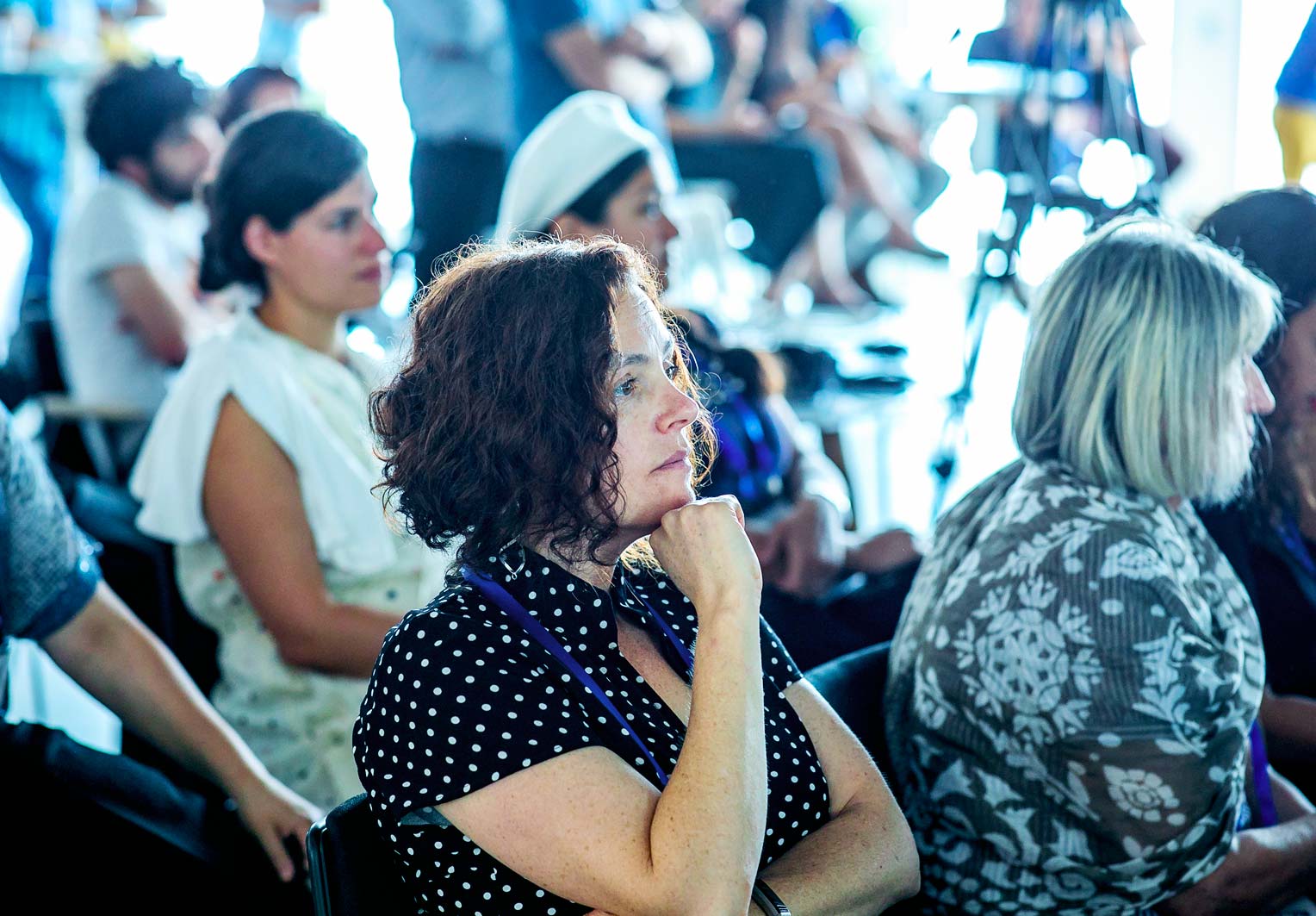It took a pandemic to get Rabbi Hadas Ron Zariz – a female rabbi ordained by the Beit Midrash of Israeli Rabbis – and Rabbi Ilai Ofran – a male rabbi ordained by the Rabbanut of the State of Israel – into the same room. True, it was not even a real room, it was virtual space. But rest assured there was real work and real life going on within those virtual walls.
Three weeks after the Corona crisis first peaked in Israel communal rabbis began to experience their own spiritual crises. Long hours over too many days and nights attending to so much brokenness, fear, and pain had finally caught up with these men and women. The sheer breadth of new problems facing rabbinic communal leaders was overwhelming: from taking care of isolated people with special needs and physical challenges, to responding to the financial stress brought about by our new quarantined world and, of course, figuring out how to be present for people when physical presence has to reimagined.
And all of these unprecedented challenges had to be navigated alongside their own personal concerns for health, finances and the familial stresses created from living under lockdown.
It was too much.
So, a diverse group of rabbis, composed of men and women, across the denominational divides, from small towns and cities, got together and established a space where they could find support and share their burdens. With the financial support of the Honey Foundation for Israel, Rabbi Hadas Ron Zariz, a therapist and instructor at Hamidrasha College who herself is a communal rabbi, along with Rabbi Ilai Ofran, a psychologist and rabbi of Kvutzat Yavneh, helped this diverse group of rabbis create a nurturing space for renewal. The majority of these rabbis had never sat in the same room together. In the world before Corona there were precious few opportunities for an egalitarian female rabbi to sit alongside an Orthodox rabbi and speak together about the work of the communal rabbinate.
But the pandemic, with its unique challenges, has brought us together in unexpected ways as we share our common vulnerabilities. We have been given opportunities to see people in fresh ways.
Ideological walls and social boundaries within Israeli society simply gave way as these rabbis connected over shared struggles and challenges, and over their common humanity and desire to be better servants to the Jewish people. At its core, rabbinic communal work is about being present for others while trying to create holy community through the language of Torah. Despite the real differences that exist, these rabbis were given the blessing of being able to see the fundamental things they share and find a common language that transcends particular ideologies. The members of this group will now take these relationships and new ways of seeing into the field of Israeli Judaism and build on them.
But there were other blessings.
The Honey Foundation for Israel supported this group of rabbis because we seek to partner with those Israeli rabbinic leaders who are transforming the professional field of communal rabbis – particularly those building Jewish communities not funded by the State. Israelis – especially those who do not have a strong knowledge of Judaism – are trying to figure out new ways of being in conversation with the Jewish past, as they try to forge a new Jewish future. And yet, sadly, community rabbi – someone whose full-time job is to build and nurture community through Judaism and Jewish living – virtually does not exist.
Our Corona rabbinic support group communicated to these rabbis that rabbinic work is not simply an activity that one performs or a part-time job. Being a communal rabbi is an identity. It’s a total commitment and investment of oneself in community. And because this identity is existential, it is both exhilarating and exhausting. As such, the community in turn needs to nurture these leaders and affirm the professional seriousness of this work.
Over and over again, we heard from these participants that one of the great gifts of this group was the sense of professional identity it gave them at a moment when the challenges of their work threatened to overwhelm them. The very existence of the group helped shift their self-understanding of their potential power as rabbis. At a moment when they felt depleted and could give no more, they were able to experience the fellowship of other rabbis who shared similar aspirations to build Jewish community. And within this awareness there was strength.
We have all had great setbacks and losses over the last months. There is much to mourn. But there have been cracks that allow in light. Over the last months there have been important cultural shifts within rabbinic communal work in Israel. The Honey Foundation for Israel is proud to partner with these transformational leaders on the ground, particularly at a time when the world needs more connection.
Rabbi David Hoffman, PhD
President of the Honey Foundation for Israel
